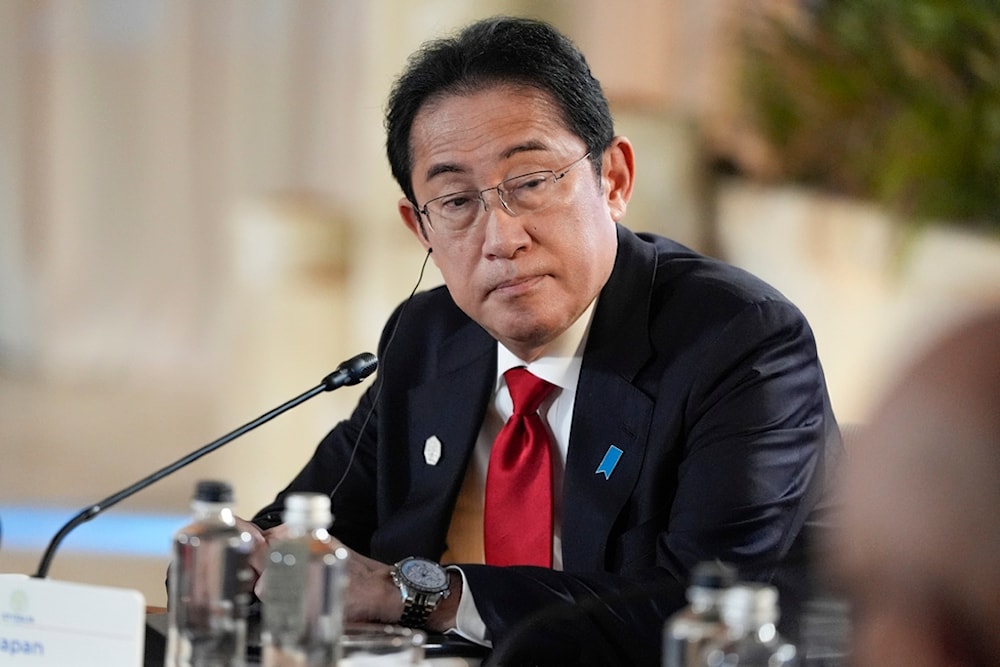Japan's opposition submit no-confidence votes against PM Kishida
Japanese Prime Minister Fumio Kishida has been caught in two no-confidence vote submissions by different Japanese opposition parties.
-

Japan's Prime Minister Fumio Kishida attends the Partnership for Global Infrastructure and Investment event at the G7 summit, Thursday, June 13, 2024, in Borgo Egnazia, Italy. (AP)
The Constitutional Democratic Party of Japan's opposition motioned for a no-confidence vote against Prime Minister Fumio Kishida's cabinet on Thursday.
The vote is expected to take place throughout the day, at the plenary session of the lower house of the Japanese parliament, according to Japanese media.
The draft resolution, acquired by Japanese broadcaster NHK, stated, "Prime Minister Kishida has not shown leadership to clarify the truth about the political funds of the Liberal Democratic Party factions, and the problem of the emergence of the ‘kickbacks’ practice has not yet been explained."
Earlier on Tuesday, another opposition party, the Nippon Ishin no Kai party, submitted a no-confidence vote against Kishida.
In light of the motions, debates were held in parliament during which opposition leaders called for the prime minister's resignation and the nomination of a "more capable" candidate.
Kishida, however, responded to the calls by highlighting the urgent issues the government has to undertake.
A survey released earlier this week by Japanese broadcaster Asahi indicated that the approval rating for the ruling Liberal Democratic Party, led by Kishida, had fallen to 19%, marking its lowest since 2001. The government's approval rating was marginally better at 22%, while 64% of respondents expressed distrust.
Do Kishida's governmental decisions fuel opposition?
On January 7, Japanese prosecutors made the initial arrests in a funding scandal that led Prime Minister Fumio Kishida to replace four ministers, according to local reports.
Japanese media outlets reported that Yoshitaka Ikeda, a 57-year-old lawmaker from the ruling party, was detained on suspicion of violating the political funds control law.
According to reports, Ikeda, along with his 45-year-old secretary, who was also arrested, is under suspicion of receiving kickbacks totaling around 48 million yen ($330,000).
In December, PM Kishida sacked the top government spokesperson, the trade minister, and two other ministers over a failure to report political funds as required by law. The arrests came after Tokyo public prosecutors raided offices belonging to the Liberal Democratic Party (LDP).
By the end of January, Japanese media reported that amid the ongoing financial scandal, the LDP led by the party's chairman, Hiroshi Moriyama, had announced its dissolution.

 3 Min Read
3 Min Read








